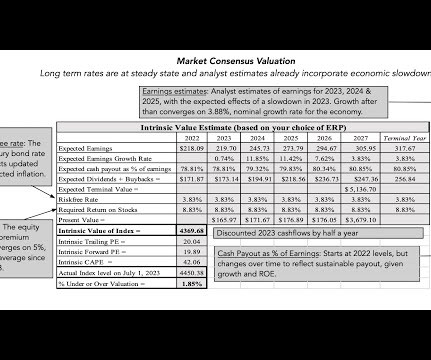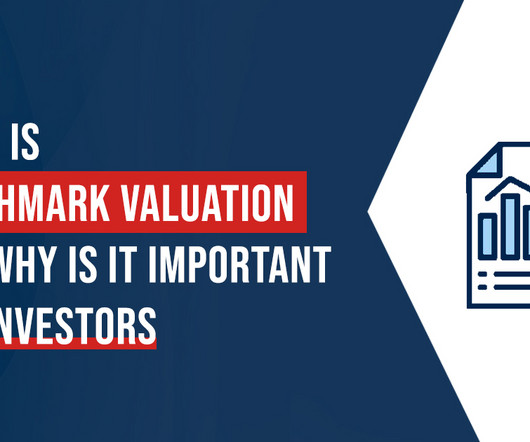Dark Accounting Matter
Harvard Corporate Governance
JULY 9, 2024
The S&P 500 currently trades at a price to book value of 4.2, suggesting that book value accounts for less than 20% of the S&P 500’s market value. more…)

Harvard Corporate Governance
JULY 9, 2024
The S&P 500 currently trades at a price to book value of 4.2, suggesting that book value accounts for less than 20% of the S&P 500’s market value. more…)

IVSC
FEBRUARY 7, 2022
Searching for stocks with low price-to-book ratios was a good indication of a potential bargain. This makes the task of valuation much more difficult, but also a lot more interesting. In the past, market valuations often mirrored the reported balance sheet.
This site is protected by reCAPTCHA and the Google Privacy Policy and Terms of Service apply.

Sun Acquisitions
OCTOBER 13, 2023
This approach relies on analyzing the market value of comparable publicly traded companies, known as guideline companies or multiples. By comparing key financial metrics such as price-to-earnings (P/E) ratios, price-to-sales (P/S) ratios, and price-to-book (P/B) ratios, analysts can estimate the target company’s value.

Musings on Markets
JULY 17, 2023
In 2022, old-time value investors felt vindicated, as the damage that year was inflicted on the highest growth companies, especially in technology.

RNC
OCTOBER 1, 2024
Different Methods of Benchmark Valuation There are several ways to conduct a benchmark valuation, each with its unique focus and methodology: Price-to-Earnings Ratio (P/E) The P/E ratio compares a company’s current share price to its earnings per share (EPS). It’s one of the most popular metrics for evaluating stock performance.

Valutico
MAY 6, 2024
Market-based methods like Comparable Companies Analysis and Precedent Transactions Analysis offer relative measures of value based on market data. Income-based methods such as Discounted Cash Flow analysis focus on future cash flows to determine value. Excerpted from the book “Valuation for Mergers and Acquisitions” by Barbara S.

Andrew Stolz
JANUARY 12, 2022
Book value is the value attributable to shareholders in case the company sells all its assets and repays its liabilities (also called liquidation value). A price-to-book ratio of less than 1x indicates that the market values the net assets less than the balance sheet suggests.
Let's personalize your content